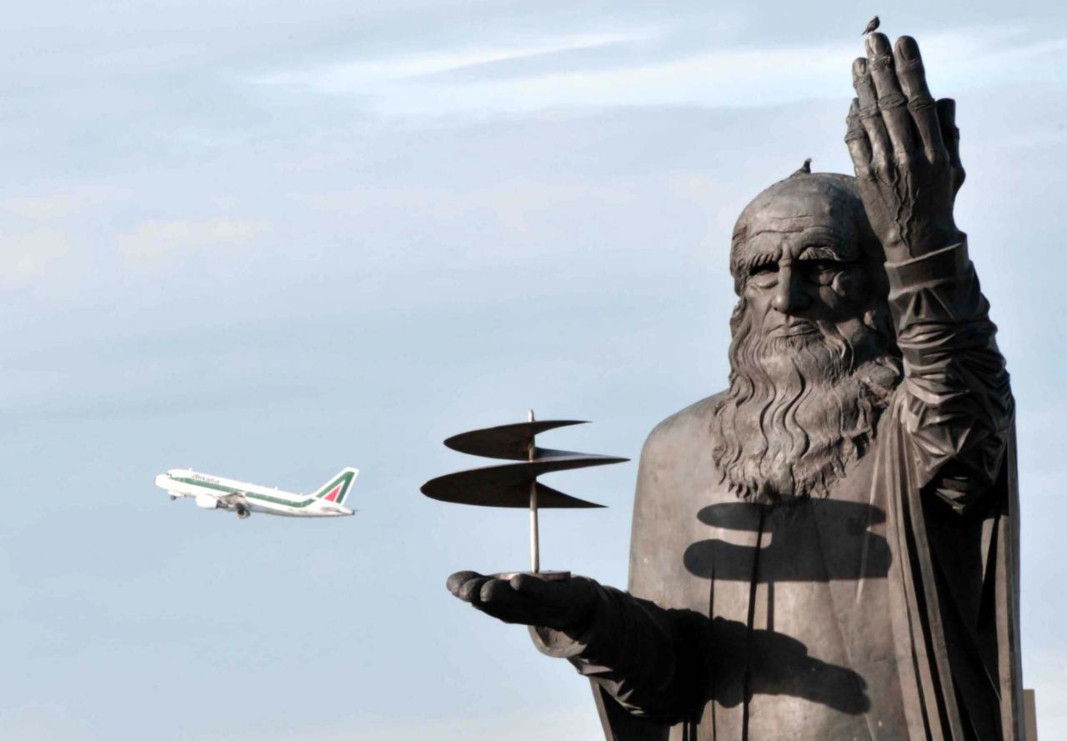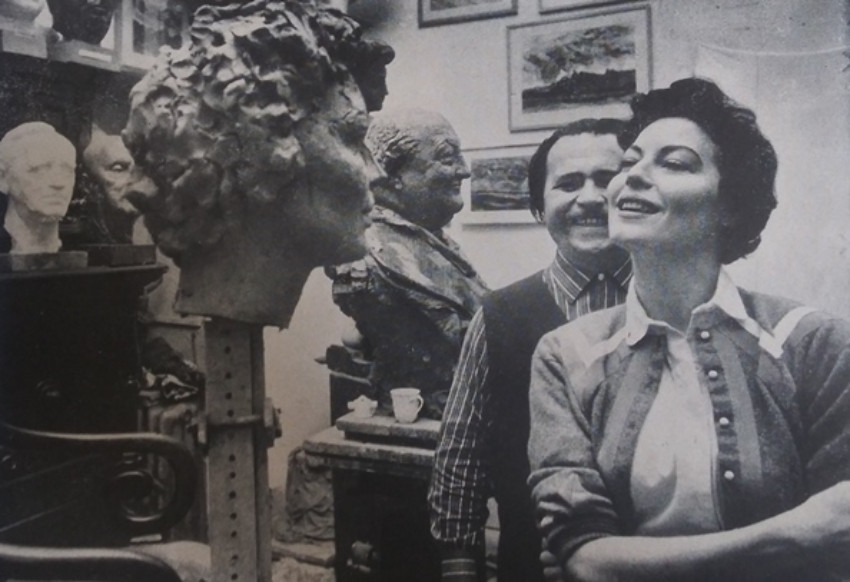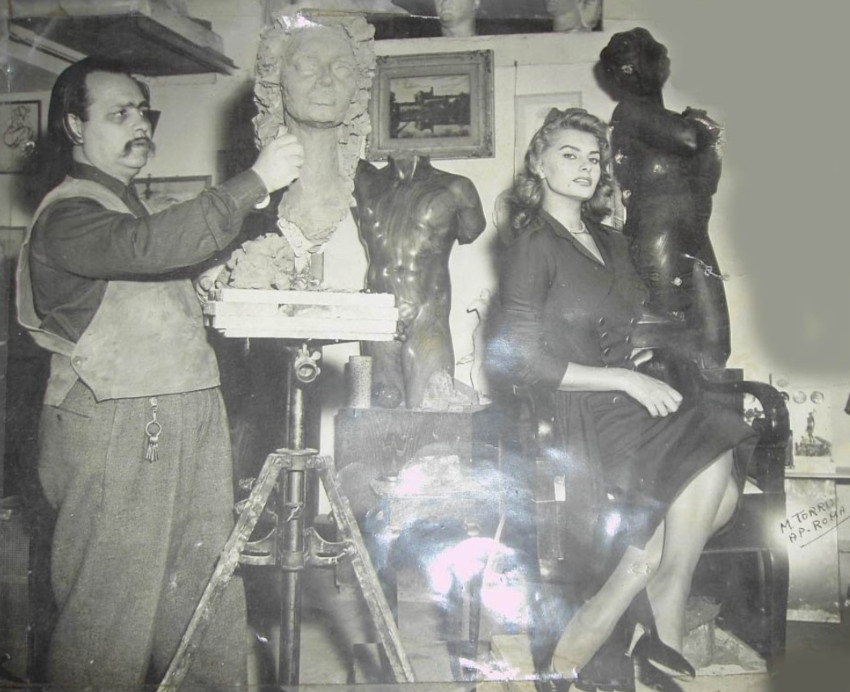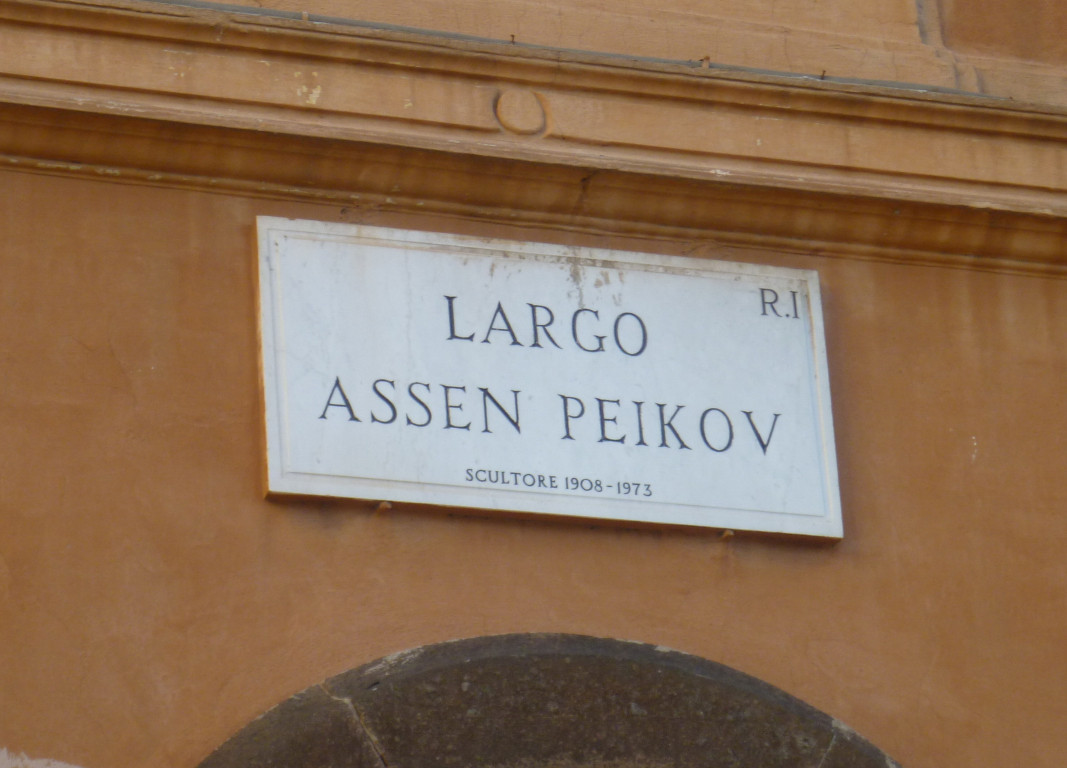The statue of Leonardo da Vinci stands high along the road from Fiumicino airport to Rome.Thousands of tourists heading to the Eternal City pass by this remarkable monument every day. But have they ever heard that the elegant statue that greets them by the airport was created by the Bulgarian sculptor Assen Peikov?

If we were to take the results of Radio Bulgaria's latest poll and interpret them, using them as a kind of survey, the answer would be positive. With 61% guessing the name of the Bulgarian sculptor who made the statue of Leonardo da Vinci at Rome's Fiumicino airport, the readers of our Greek page are the most knowledgeable.
With the exception of the readers of our Turkish section, who chose the correct answer last out of the five possibilities, the readers of all the other language sections gave the most votes to Assen Peikov. And while the curiosity of foreign readers is inspiring, it is still puzzling why almost half of Bulgarians (44%) voted wrongly, unaware that they could be proud of the work of this Bulgarian master.
The popularity of Assen Peikov, born in 1908 in Sofia, exceeds the borders of not only Bulgaria and Italy, but also Europe. He graduated with a gold medal from the State Academy of Art. Assen Peikov studied in the classes of renowned sculptor Professor Andrey Nikolov. He left Bulgaria at the age of thirty and settled in Italy, where he became one of the leading figures of Italian sculpture.
By the 1940s, Assen Peikov already had his place in the artistic circles of Rome. He kept a studio on the most fashionable street in the capital at the time, Via Marguta, and made friends with world-famous stars. His companions in bohemian life are Vittorio De Sica, Federico Fellini, Ava Gardner.

His forte is portraiture. Under his hands, historical figures across a wide time span come to life - from Mozart to Bulgarian Khan Asparuh, from Alexander Fleming to Sophia Loren. In the 1950s and 1960s he became one of Italy's most sought-after and highly esteemed portrait sculptors. Over a thousand of his works are now in galleries and private collections throughout the United States, Europe and South America.

The Bulgarian sculptor was commissioned by the municipality of Rome to create the impressive nine-metre bronze statue of Leonardo da Vinci. It was inaugurated on 9 August 1960. Assen Peikov placed the sculpture of the Renaissance genius on a three-metre pedestal, where Leonardo stood even higher with his hand pointing to the sky, holding his aerial screw with the other.
Unfortunately, the sculptor, revered throughout Italy and beyond, failed to gain fame and recognition in his own country during his lifetime. In 1969, his design for a monument to Khan Asparuh received only an encouragement award from the Bulgarian selection committee. After an artistic life spanning more than three decades, Assen Peikov left this world in 1973. He passed away in the country where his talent was valued.
Today a square in Rome is named after Assen Peikov, and his works can be seen in 16 Italian cities. And although the glory of the once-famous Via Marguta has long since waned, the studio of the Bulgarian sculptor is still there, with some of his sculptures - all preserved thanks to his son Rodolfo.

When Bulgarian visitors stop by the famous Caffé Greco on Via Condotti, a meeting place of poets, artists and musicians since a century ago, they may be surprised to find out that in the "hangout" of so many celebrities, there is a bas-relief of Assen Peikoff and a small red painting of his brother Ilia, known as the artist who saw the Cosmos. A curious story is associated with him. When Soviet cosmonaut Yuri Gagarin returned from his spaceflight, he believed he was the only man to have peered into the universe. "It's impossible to put on canvas what is really there," he exclaims, standing in front of Ilia Peikov's paintings.
Stay tuned for Radio Bulgaria's story about this extraordinary visionary artist. Until then, you can join in with the answer to the next question in our quiz:
Who introduced the spiritual and physical health practice of Paneurhythmy, which has spread throughout the world?
Photos: library
An exhibition in memory of the great Bulgarian actor Georgi Partsalev, on the occasion of the 100th anniversary of his birth, opens today in the open-air gallery in the garden in front of the Ivan Vazov National Theatre. The exhibition "Don Quixote of..
They say that Divna Shalich Lafchieva was a woman with many homelands. Like the multifaceted nature of her soul, she was also a woman with many vocations. But the most important thing is that from the paths she has left her..
The director of the Sofia Philharmonic Orchestra, Nayden Todorov, will conduct an opera gala in Prague tonight featuring renowned Romanian soloists. Soprano Angela Gheorghiu and tenor Teodor Ilincăi will perform arias and duets by Handel, Puccini,..
An exhibition in memory of the great Bulgarian actor Georgi Partsalev, on the occasion of the 100th anniversary of his birth, opens today in the open-air..
They say that Divna Shalich Lafchieva was a woman with many homelands. Like the multifaceted nature of her soul, she was also..
The director of the Sofia Philharmonic Orchestra, Nayden Todorov, will conduct an opera gala in Prague tonight featuring renowned Romanian soloists...

+359 2 9336 661
